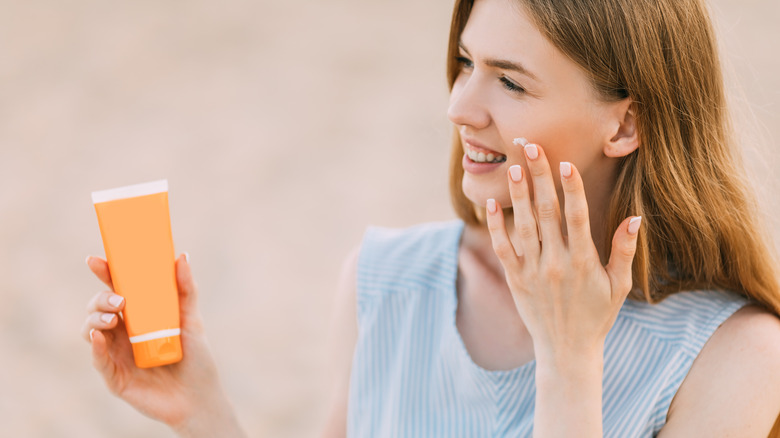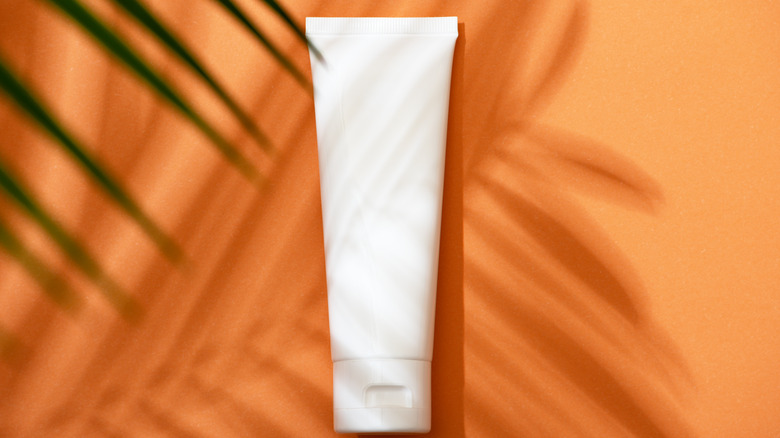Will Sunscreen Cause Breakouts?
Wearing sunscreen is a great way to protect your skin from the sun's harmful ultraviolet (UV) rays. In fact, using sunscreen with a sun protection factor (SPF) of 30 or higher can help prevent sunburn, skin damage, and the appearance of aging skin (via NBC News). It can also reduce your risk of skin cancer.
Despite its many benefits, however, certain sunscreen formulas may cause breakouts, especially if you already have acne-prone skin. That's because the oils and minerals present in many types and brands of sunscreen can clog your pores and irritate your skin, causing you to break out. However, this doesn't mean that you shouldn't wear sunscreen if you have acne — quite the opposite. Acne-prone skin is actually extra sensitive to the sun's UV rays and therefore more susceptible to sunburn. That's why it's important to find and wear sunscreen that will protect your skin from the sun without clogging your pores.
How to find sunscreen for acne-prone skin
Fortunately, there are plenty of sunscreens out there that are suitable for people with acne-prone skin. You just have to look closely and examine the label and list of ingredients to find out whether or not a product is acne-friendly. For instance, the best sunscreens for acne-prone skin are noncomedogenic. This means that the product doesn't contain ingredients, like coconut oil, that are likely to block or clog pores (via Prevention).
It's also important to use sunscreens that are lightweight and oil-free (via Verywell Health). Unlike sunscreen lotions and creams, sunscreen gels or liquid sunscreens are lighter and have a gel-like or liquid consistency that can easily be absorbed without clogging your pores or leaving a greasy finish. You should also avoid sunscreens with active ingredients like oxybenzone and PABA if you have sensitive or acne-prone skin as these ingredients are likely to dry out and irritate your skin. Instead, opt for natural sunscreen products with titanium dioxide and zinc oxide, which won't be as harsh on your skin.


